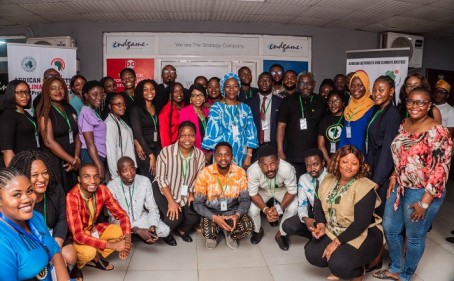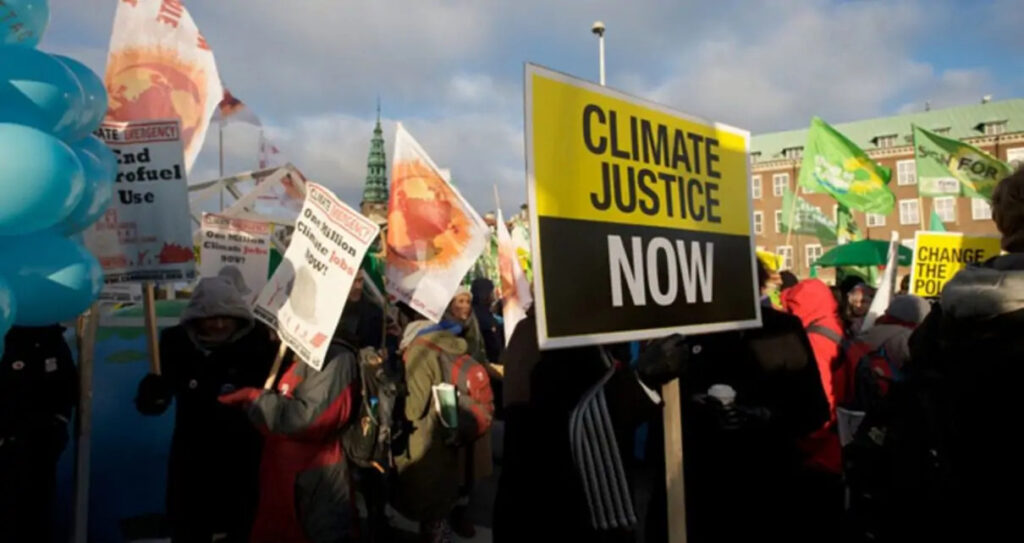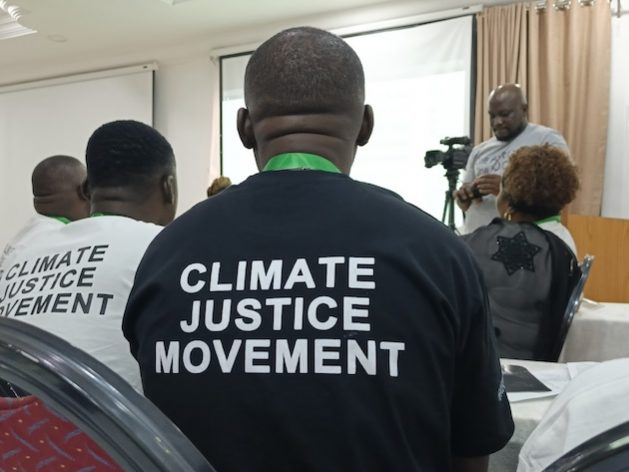In a momentous gathering at the heart of Abuja, a coalition of educators, policymakers, youth voices, and civil society actors united around a shared vision: embedding Climate Justice Curriculum Advocacy into Nigeria’s secondary school system. Their resounding message? True sustainability begins in the classroom.
A Timely Initiative with Global Roots
On May 22–23, environmental advocates convened at a national workshop organised by the Nigerian Environmental Study/Action Team (NEST), with support from Pan African Climate Justice Alliance (PACJA) and African Coalition for Sustainable Energy and Access (ACSEA). The event wasn’t just about policy talk; it was a declaration of action, prioritising climate justice and resilience education for young learners.
Voices from the Workshop Floors
Professor Chinedum Nwajiuba, NEST’s Board Chair, opened the forum with a rallying cry: “We must not be seen to be talking too much but doing too little.” This sentiment echoed throughout the two-day event. Notably, Sam Onuigbo, the sponsor of Nigeria’s Climate Change Act 2021, stressed that climate education must be compulsory across all educational tiers.
Further, Dr. Peter Tarfa, former director at the Ministry’s climate division, sounded a cautionary note: “Without effective governance, Nigeria risks developmental setbacks. We have the frameworks, but our Achilles’ heel is implementation.”
Their intervention highlighted a critical insight: while policy structures exist, their strength lies in tangible execution, especially within schools.

Bridging Global Mandates and Local Needs
This advocacy aligns with wider global commitments rooted in Article 6 of the Paris Agreement, which emphasises climate education as a frontline action. Nigeria is urged to implement UNFCCC’s Action for Climate Empowerment (ACE), urging nations to adopt meaningful educational programmes
Locally, initiatives spearheaded by the DEAN Initiative and others have demonstrated success. Abuja and six other states piloted extracurricular climate-learning sessions, unveiling a dynamic curriculum that has since empowered over 1,500 secondary school students.
Real-World Impact in Nigerian Classrooms
These efforts have extended beyond pilot projects. In Kwara State, a recent summit empowered 60 young Climate Justice Ambassadors from 20 secondary schools to champion climate action within their communities. Participants highlighted the importance of “free flow of credible and factual information” and advocated for mainstreaming climate education into the national syllabus.
Meanwhile, student-led debates in Abuja schools—hosted by NGOs like C‑Circle Foundation and Rotary—have proven that interactive methods spark excitement and practical problem-solving skills among youth
From Clubs to Curricula: A Whole-School Approach
Experts are calling for a systemic shift. The “whole‑school” model in Education for Sustainable Development (ESD) proposes embedding climate justice not just in subjects, but across all aspects of school life—governance, operations, teaching, and community outreach.
Stakeholder workshops in Abuja supported this approach, advocating sustainable infrastructure like renewable energy, orchards, waste management systems, and water conservation measures in schools. These efforts are to be complemented by integrating climate change topics into current curricula and enhancing the capacity of teachers and administrators.
Why Nigeria’s Youth Must Lead on Climate Justice
Nigeria sits at the frontline of climate vulnerability—from drought in the north to flooding in the south. A powerless youth is a lost opportunity. Climate justice education not only raises awareness but also equips students to challenge social inequities that amplify environmental harm.
For instance, Adenike Oladosu, an ecofeminist and youth activist from Abuja, started school strikes and led peer-driven climate advocacy across Africa. Her story is a testament to the transformative power of empowered youth.

Turning Advocacy into Action: Concrete Next Steps
To move from aspiration to impact, workshop participants outlined a clear roadmap:
- Curriculum Integration
Embed climate justice across secondary school subjects, leveraging both the Ministry of Education and the Federal Ministry of Environment. - Teacher & Institutional Capacity Building
Train educators, administrators, and school leaders; establish Green Clubs and resource networks. - Monitoring & Partnerships
Create a robust monitoring framework linked to student outcomes, backed by partnerships with the private sector, NGOs, and academic institutions. - Community & Policy Engagement
Involve local stakeholders in school-based environmental projects while linking school initiatives to broader policy frameworks like Nigeria’s Climate Change Act 2021.
A Shared Responsibility
“Climate justice curriculum advocacy” isn’t an abstract ideal—it’s a call to embed equity and resilience into the fabric of education. Students gain academic knowledge and become informed agents of change, ready to challenge systems that perpetuate environmental injustice.
The Abuja workshop confirmed that Nigeria already possesses the ideas, resources, and will. Now, coordinated commitment from federal agencies, state governments, school leaders, civil society, and private partners is vital to turn advocacy into action.
In Conclusion
Integrating climate justice into secondary school education could redefine Nigeria’s approach to sustainability. This is not about sharing textbooks—it’s about nurturing a generation that understands the interconnectedness of environment, equity, and economy; a generation that can hold leadership accountable. The seeds planted in Abuja need swift cultivation. And there’s no better time than now to act.
Join Our Social Media Channels:
WhatsApp: NaijaEyes
Facebook: NaijaEyes
Twitter: NaijaEyes
Instagram: NaijaEyes
TikTok: NaijaEyes
READ THE LATEST EDUCATION NEWS







































